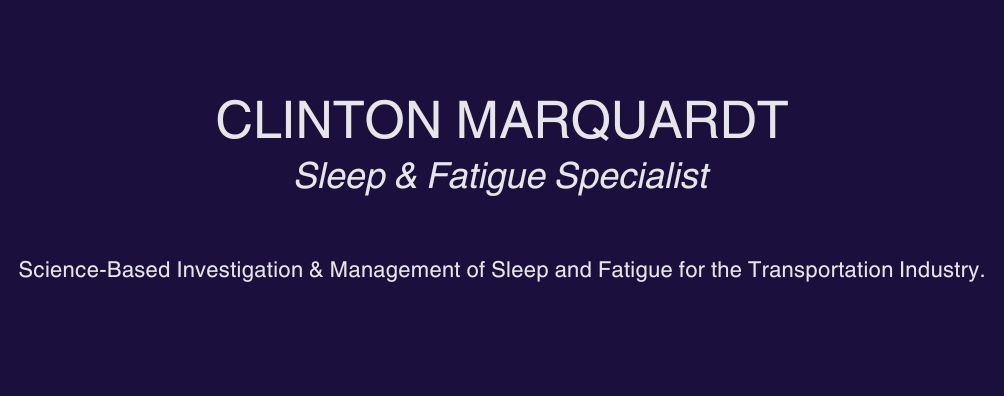It seems like about once a month I hear about another study proclaiming that we don’t need 7 to 8 hours of sleep per night. I have started to ignore the press around those studies. There is always a fundamental flaw in the link between the researcher’s results and the statements hyped by press. For example, a headline that was bouncing around a few months back was something like “Medical Doctors Don’t Need More Sleep”. This came from findings published in the Canadian Medical Association Journal showing that shorter shifts for doctors does not improve patient safety[1]. The flaw with the link here was that the researchers did not measure sleep, and the press assumed that if the doctors were working less, they were sleeping more. But they could have been using the time to study (the participants were residents), tending to family and personal matters, or even partying! In fact, the researchers also found no link between shorter shifts and fatigue levels. To me, this means that the doctors did not sleep more with the new found time and no wonder there was no improvement to patient safety….I bet if they did sleep more, we would see some interesting results.
Then there are the headlines like “Too much sleep will kill you!” These ones are usually based on studies that find a link between sleeping longer than 9 hours and higher mortality rates. While this relationship is strong, the press never point out that it is based on science, which is based on averages. Sure, overall, people sleeping more than 9 hours do tend to die sooner than people sleeping 7 to 8 hours. But there are lots of people who sleep 9, or even 10 hours, who live long, happy lives. And the truth is that biology won’t allow you to sleep more than you need. When you oversleep, biology compensates by spreading the sleep out over the time you spend in bed. The extra time is not a good quality sleep. It is usually made up of light sleep fragmented by awakenings. It’s not efficient sleep[2]. If you were to record your sleep like they do in a sleep lab, your total sleep time would be pretty much the same, even though it feels like you are sleeping longer. You are just spending more time in bed, not moving. Which adds another complication into the 9 hour sleep and mortality rate relationship. People who are less active, are generally less healthy. This means the relationship might have less to do with sleep and more to do with lower activity levels.
“So just how much sleep do I need? Do I need more or do I need less?” These are the questions you should be asking yourself. Not “Do I need 6.5 of sleep?” or “Do I need 9 hours of sleep?” You have to balance what your biology needs with what you get. Too little and you will be a zombie, too much and you’ll be like Frankenstein, and just right you’ll be as happy as a clown.

Here are some signs to help you understand if you are getting the right amount of sleep.
Zombies trudge through their lives, with not much capacity for thought. If you are not getting enough sleep you will experience the zombie-like symptoms of:
- difficulty concentrating and paying attention
- word finding difficulties
- unable to quickly and accurately solve problems
- absent minded
- constant fatigue
- falling asleep when you are supposed to be awake
- slower than normal reaction time
- emotional and cranky
- falling asleep within seconds of lying down for bed
- very few awakenings, if any, during sleep
- hard to wake up after sleep
Frankenstein has a bit better life than a zombie, he can mentally process things better too. If you are getting too much sleep, remember this usually only means that you are spending too much time in bed, you will experience the Frankenstein-like symptoms of:
- brain fog
- low energy
- hard to get yourself going after sleep
- low motivation
- difficulty falling asleep when you lie down for bed
- headaches
- muscle aches
- lots of brief awakenings during sleep
Clowns have fun lives, at least the happy-faced ones do. They have no problems with mental processing. If you are getting the right amount of sleep you will experience the clown-like symptoms of:
- good energy levels that kick in within 2 hours of waking up
- falling asleep within about 10 minutes of lying down for bed
- happy with a good range of emotions
- quick thinking
- maybe one brief awakening during sleep
- waking up around the same time everyday
Footnotes
[1] Parshuram, C., Amaral, A., Ferguson, N., Baker, G. R., Etchells E., Flintoft, V., Granton, J., Lingard, L., Kirpalani, H., Mehta, S., Moldofsky, H., Scales, D., Stewart, T., Willan, A., & Friedrich, J. (2015). Patient safety, resident well-being and continuity of care with different resident duty schedules in the intensive care unit: a randomized trial. Canadian Medical Association Journal, 187(5), 321-329. Retrieved 30Oct15 from http://www.cmaj.ca/content/early/2015/02/09/cmaj.140752
[2] Learn how to calculate your sleep efficiency here: http://sleepanddreams.com/?p=170.


